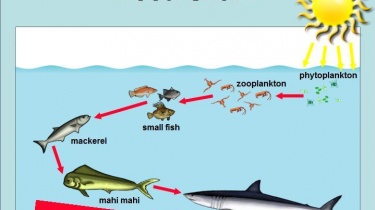Can we eat our fish and keep them in the sea as well?

In a recent Sunday Times newspaper there was a news item stating about 200 International Scientists will meet in Sri Lanka in September 2019 to discuss saving living forms in the tropics” (the tropics is said to host about 80% of all species found on planet earth).
What does this news mean to us, the people of tropical Sri Lanka and the people of Batticaloa district in particular? It means every time we enjoy a fish, crab or prawn curry or buy a beautiful aquarium fish we should ask ourselves are we leaving behind enough fast growing young individuals and enough mature individuals capable of producing the next generation out in the ocean so that the populations of marine species will be maintained fairly stable throughout time. If we fail to do this the marine organisms will finally disappear or become extinct.
Why should populations of marine species be maintained? Are they so important to us?. Yes, marine organisms form essential parts of food webs and biogeochemical cycles in the oceans , which ensure the smooth flow of energy and materials through the oceans in order to keep a balance between the inputs and outputs of the ocean ecosystem.

Any imbalance between the inputs and outputs will produce chaos and destruction in the natural world.

A biogeochemical cycle
So we should be careful enough to make sure the amount of living organisms we take out of the oceans should in no way affect the ability of the organisms left in the water to replace the ones lost. The maximum amount of living organisms that can be thus removed is called the maximum sustainable yield of a particular species population.

Fishing effort is defined as the number of fishermen, number of gears, number of hours used in fihing.
In Batticaloa marine species are mainly caught for food but a growing proportion of the catch is being exported to other countries as frozen, canned or live forms( as in the case of ornamental fishes), earning good money to our country. Data on marine production in Sri Lanka is fairly uncertain according to FAO due to sampling or data collection methods. Although there is some data for other parts of the country, very little reliable information is available for the Batticaloa district. However, the increased fishing effort after the tsunami due to an increased supply of boats and gears to the fishermen of the Batticaloa district may lead to over exploitation of the fish populations if sufficient precautionary measures are not taken soon.
By adjusting the fish net mesh sizes and fish hook sizes the fishermen can avoid catching the fast growing young fish and the large mature fishes with eggs. Similarly by taking measures to avoid fishing in coastal nursery grounds (mangroves and coral reefs) where the eggs are laid and the larvae grow, maximum sustainable yield can be maintained in the sea.

In conclusion, using a banker’s jargon if we use the interest only we can keep our capital intact but if we eat into the capital as well we be the losers in the long run. So we may have our fish and keep them as well!
Vino Santhanam
